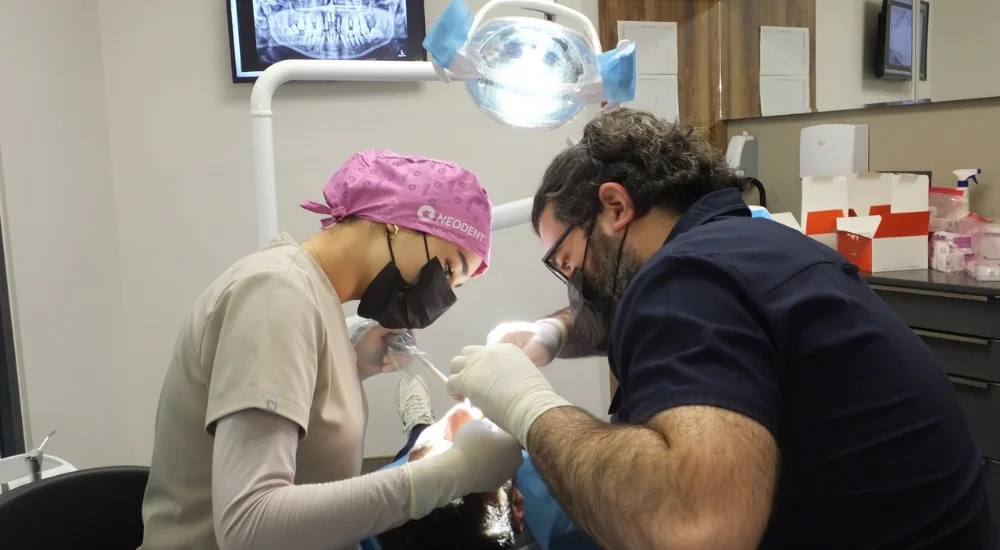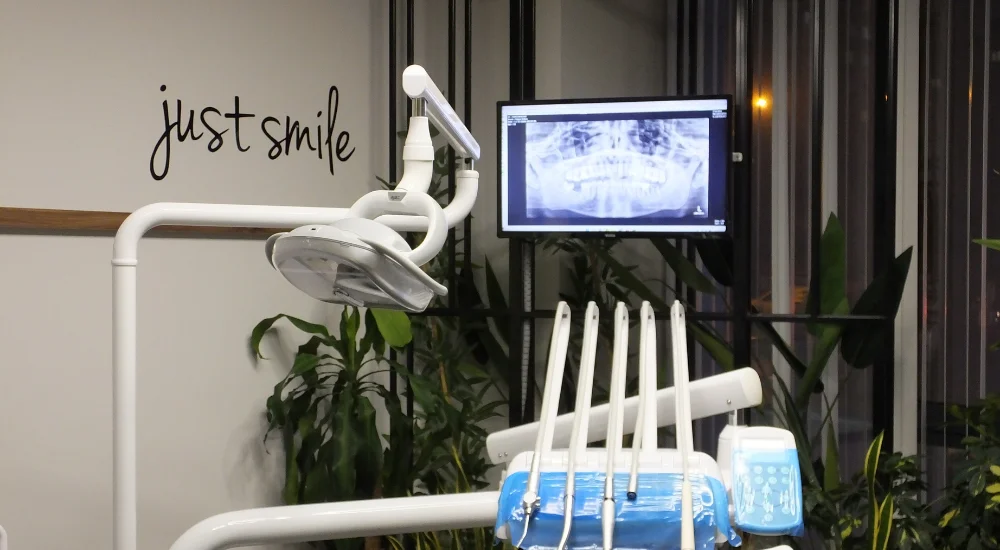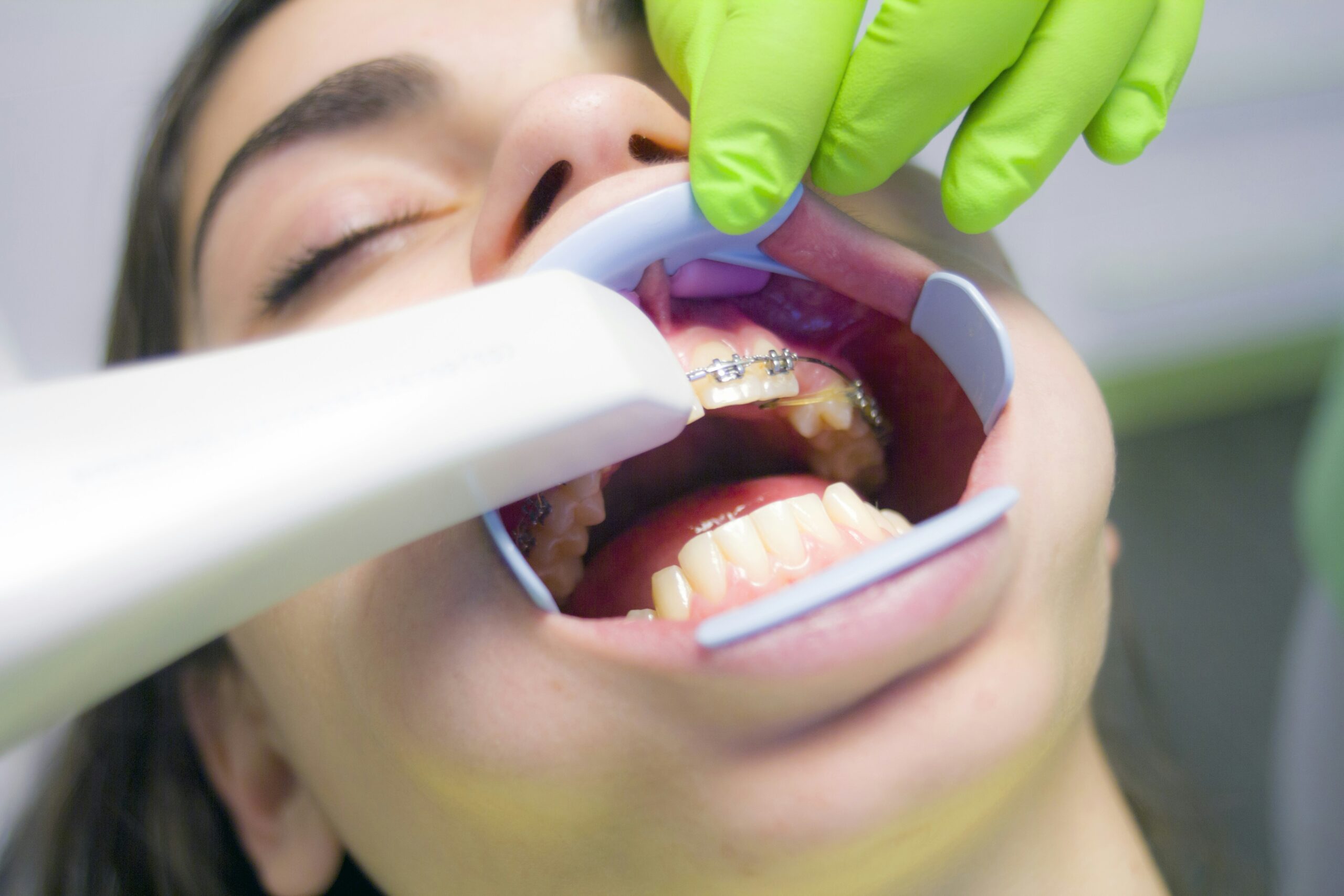Full Mouth Implants in Istanbul, Turkey
Why Choose Valuedent Clinic for Full Mouth Implants?
- Over 98% Patient Satisfaction Rate
- US-trained dental professionals
- World-class Materials and Technology
- Up to 70% Cost Savings
- All-Inclusive Treatment Packages
- Luxurious Patient Experience
- Lifetime Warrantly
Quick Access and Important Points About Full Mount Dental Implants
| Key Point | Details |
|---|---|
| What is a dental implant? | Innovative solutions to replace missing teeth include a titanium post, abutment, and crown. |
| Cost-Effective | Dental implants in Istanbul typically range from $400 to $800, significantly lower than prices in Western countries (often $4,800 to $9,600). |
| Quality Care | Clinics like Valuedent Clinic offer state-of-the-art technology and are staffed by highly qualified professionals. |
| Comprehensive Packages | Many clinics provide all-inclusive packages that cover treatment, accommodation, and transportation, making the process easier for international patients. |
| Cultural Experience | Patients can explore Istanbul’s rich history and vibrant culture while receiving dental care. |
Procedure Overview | The process includes an initial consultation, implant placement, a healing period, and follow-up visits for monitoring. |
Aftercare and Recovery | Proper aftercare is crucial for healing, including following dentist instructions, maintaining oral hygiene, and attending follow-up appointments. |
Full Mouth Dental Implants Turkey Package Deals
Are you tired of hiding your smile because of missing or damaged teeth?
Full mouth implants might be the answer you’ve been searching for. Imagine stepping into a new chapter of your life with a complete set of beautiful, functional teeth.
In Istanbul, Turkey, Valuedent Clinic offers new dental solutions. These can improve your oral health and increase your confidence.
If you are thinking about full mouth implants for a long-term solution or seeking options while traveling, this blog will help you. Valuedent Clinic will guide you on how to achieve the beautiful smile you have always wanted. Let’s dive in!
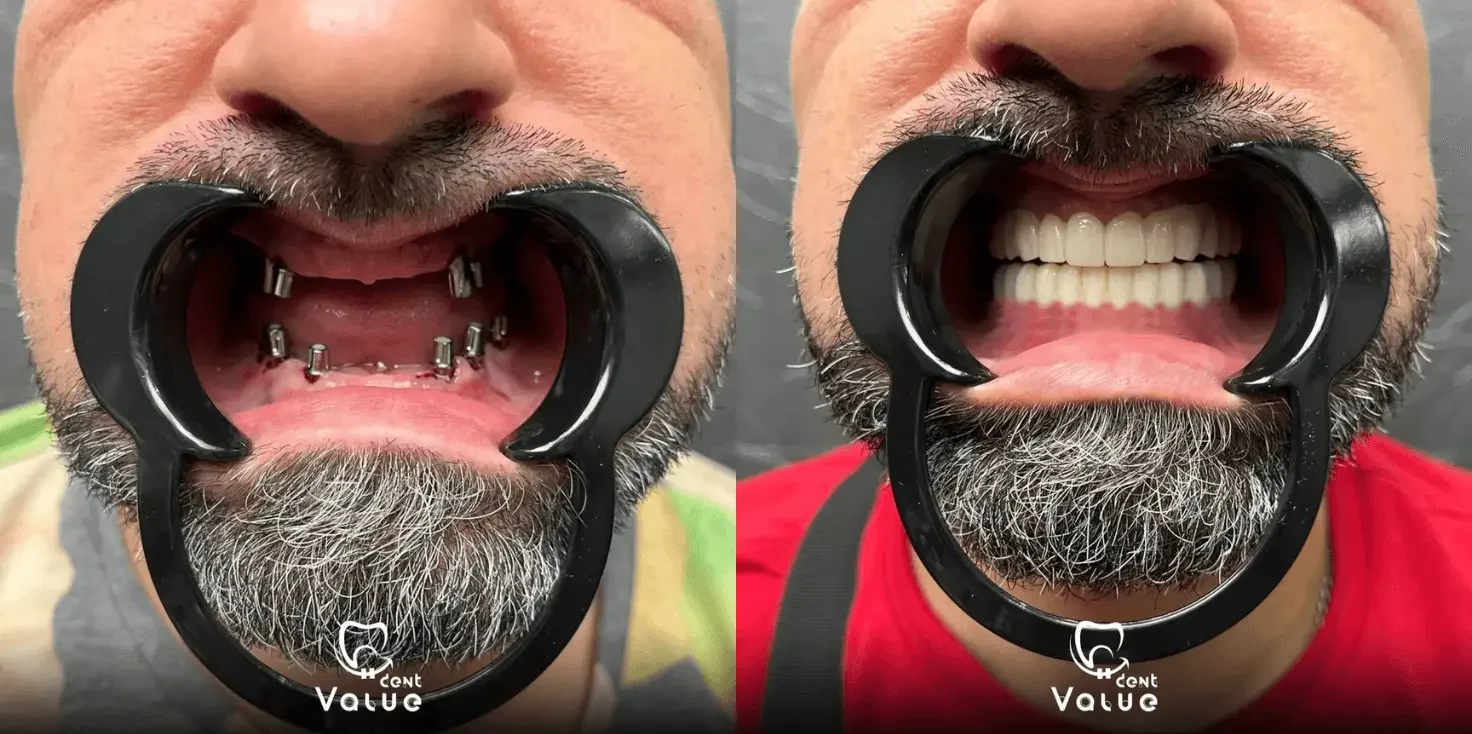
Aesthetic Dentistry in Istanbul, Turkey
Cosmetic dentistry in Istanbul helps patients achieve their beauty goals. Treatments include smile design, teeth whitening, and zirconium crowns.
Valuedent Clinic offers personalized treatment plans, providing both aesthetic and functional solutions. Additionally, the International Aesthetic Dentistry Congress held in Istanbul in 2024 reinforced the city’s leadership in this field.
Full Mouth Implants Istanbul Turkey at Valuedent Dental Clinic
Full mouth implants offer a revolutionary solution for those struggling with extensive tooth loss. At Valuedent Clinic in Istanbul, Turkey, patients can experience cutting-edge dental technology combined with expert care. The clinic is renowned for its exceptional results and patient satisfaction.
Choosing full mouth implants means opting for durability and aesthetics in one package. These dental implants in Turkey look and feel like real teeth.
You can enjoy your favorite foods without worry. Strong tooth roots keep your teeth stable and prevent bone loss. A healthy foundation ensures long-term oral health and preserves your smile.
The skilled team at Valuedent Clinic understands that every patient’s needs are unique. They create personalized treatment plans to help each person achieve a healthy smile.
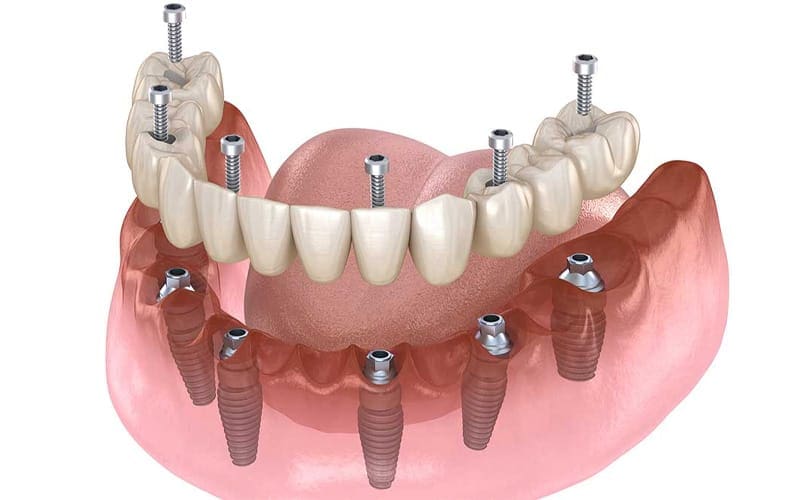
What are full mouth dental implants?
Full mouth implants Istanbul have become a popular solution for those seeking to restore their smiles. In Istanbul, Turkey, Valuedent Clinic stands out as a premier destination for these transformative procedures. With advanced technology and skilled professionals, patients can expect exceptional care.
Choosing full mouth implants enhances aesthetics, boosts confidence, and improves functionality. The procedure allows individuals to enjoy food again without worry or discomfort.
Istanbul is famous for dental tourism. Many visitors come here to get their dream smile at affordable prices. At Valuedent Clinic, each patient receives personalized attention tailored to their unique needs and expectations.
Full Mouth Implants Surgery in Turkey
Full mouth implant surgery in Turkey has gained immense popularity because of its affordability and high-quality care. Patients from around the world flock to this remarkable destination, seeking a complete dental transformation.
The procedure involves replacing all missing or damaged teeth with durable, realistic implants. Skilled dentists use advanced technology and techniques for optimal results. This meticulous approach ensures that each implant is custom-fitted to provide both comfort and functionality.
Turkey’s thriving dental tourism industry makes it easy for patients to access top-notch services at Valuedent Clinic. With state-of-the-art facilities and experienced professionals, your journey toward a confident smile starts here.
Before & After Pictures at Valuedent Clinic

The transformation stories of our patients at Valuedent Clinic are truly inspiring. Our before and after pictures vividly showcase the incredible results achieved through full mouth implants in Istanbul, Turkey. Each image tells a unique journey toward restored confidence and improved oral health.
Patients often arrive with concerns about their smiles, feeling self-conscious or uncomfortable. However, the striking difference captured in these photos highlights how full mouth implants can dramatically enhance aesthetics and functionality.
Viewing these transformations inspires trust and helps potential patients envision their possibilities. The visual proof of successful procedures shows our commitment to excellent dental care at Valuedent Clinic.
Full Mouth Implants Package Deals at Valuedent Clinic
At Valuedent Clinic, we understand that investing in your dental health is significant. That’s why we offer competitive package deals for full mouth implant placement in Istanbul, Turkey. We aim to provide high-quality care while making it accessible and affordable.
These packages often include comprehensive services such as initial consultations, imaging studies, the surgical procedure itself, and follow-up appointments. We believe transparency matters; hence, we involve no hidden costs.
Choosing one of our package deals means you get a complete solution tailored to your needs. Our team will guide you through every step of the process, ensuring you’re informed and comfortable.
Price List 2025 at Valuedent Clinic
At Valuedent Clinic, the team designs the price list for full mouth implant treatments in 2025 to provide transparency and value. Patients can expect competitive rates that reflect high-quality care and cutting-edge technology.
The clinic offers various packages tailored to individual needs, ensuring that everyone finds a suitable option. Prices typically include consultations, necessary imaging, and follow-up appointments.
Discussing your specific requirements with our dental team during your initial visit is essential. They will help you navigate through the pricing structure while considering all aspects of your treatment plan. Your journey toward a beautiful smile starts here at an affordable dental implant cost!
Single Tooth Implant Costs
| Component | Istanbul Price | US Price | Savings |
|---|---|---|---|
| Implant + Abutment | $400-800 | $2,000-2,500 | 75% |
| Crown | $200-350 | $1,000-2,000 | 80% |
| Total Single Implant | $650-850 | $3,000-4,500 | 80% |
Multiple Implant Solutions
| Treatment | Istanbul Price | US Price | Savings |
|---|---|---|---|
| 2-3 Implants | $1,300-2,400 | $6,000-12,000 | 78% |
| 4-6 Implants | $2,600-4,800 | $12,000-24,000 | 75% |
| All-on-4 | $3,600-6,400 | $25,000-35,000 | 75% |
| All-on-6 | $4,800-9,600 | $30,000-40,000 | 73% |
| Full Mouth Implants (8+ Implants) | $6,400-12,800 | $40,000-60,000 | 80% |
Full Mount Implants Cost and Package Dealsin Turkey vs USA
The cost of full mouth implants in Istanbul, Turkey, can vary significantly based on various factors. Typically, prices range from $6,000 to $15,000 per arch. This affordability attracts many individuals seeking quality dental care without exceeding their budget.
Many clinics offer package deals that include surgery and follow-up care. These bundles often encompass necessary consultations and even accommodation for international patients. Exploring these options can lead to significant savings while ensuring you receive comprehensive treatment tailored to your needs.
The cost of dental implants can vary significantly from country to country; with Full Mouth Dental Implant Istanbul, Turkey, patients often find that prices are much lower than in Western countries. In the United States, a single dental implant can range from $3,000 to $4,500, while similar services in Istanbul can cost only $400 to $800.
Save up to 70% on your smile makeover in Istanbul compared to US prices:
Additional Procedures (If Required)
| Procedure | Istanbul Price | US Price | Savings |
|---|---|---|---|
| Tooth Extraction | $50-100 | $200-700 | 85% |
| Bone Grafting | $500-1000 | $2,000-3,000 | 80% |
| Sinus Lift | $500-1000 | $2,500-3,500 | 80% |
| CT Scan | $50-100 | $300-500 | 83% |
Premium Implant Brands & Costs: Brand-Specific Pricing
| Brand | Istanbul Price | US Price | Origin |
|---|---|---|---|
| Straumann | $1000-1,300 | $3,500-5,000 | Switzerland |
| Nobel Biocare | $750-950 | $3,300-4,800 | Sweden |
| Zimmer Biomet | $700-900 | $3,200-4,500 | USA |
| BioHorizons | $650-850 | $3,000-4,200 | USA |
| Neodent by Straumann | $400-600 | $3,000-4,200 | USA |
Treatment Details at Valuedent Clinic
At Valuedent Clinic, the treatment process for full mouth implants is designed to ensure comfort and efficiency. The journey begins with a comprehensive consultation where our specialists assess your dental health and discuss personalized options.
Once you decide on the dental implant procedure, digital imaging technology aids in precise planning. The surgical team uses cutting-edge methods to reduce pain and guarantee the best possible outcome.
Post-surgery care includes regular follow-ups and guidance on maintaining your new smile. We dedicate ourselves to more than just installation. We want you to feel confident about your oral health even after you leave our clinic.
Special Services Offered at Valuedent Clinic
Valuedent Clinic goes beyond standard dental care by offering an array of special services tailored to enhance your experience. One standout feature is their personalized treatment plans, crafted after a thorough consultation with each patient. This approach ensures that every individual receives the attention they deserve.
Additionally, Valuedent Clinic provides comprehensive post-operative care, ensuring that you feel supported during your recovery. Their team is always available to address any concerns or questions that may arise.
The clinic also boasts state-of-the-art technology and facilities, making procedures more efficient and comfortable. Every detail matters for patients getting full mouth implants in Istanbul, Turkey.
Researchers use advanced imaging techniques. They also provide comfortable waiting areas. These elements help create a positive environment.
Why Choose Full Mouth Implants in Istanbul, Turkey?
Istanbul is a global hub for full mouth dental implants, offering:
✅ Up to 70% cost savings compared to UK, US, and EU prices
✅ World-class facilities with advanced dental technology
✅ All-inclusive packages, including VIP transfers and luxury accommodation
✅ Top-tier implant brands ensuring durability and effectiveness
✅ A luxury patient experience, from personalized care to aftercare support
All-on-4 and All-on-6 Implants in Turkey
All-on-4 and All-on-6 implants are popular options for full mouth restoration. These techniques use strategically placed implants to support a fixed prosthetic arch, mimicking natural teeth.
Patients prefer these solutions due to their quick recovery times, minimal surgical intervention, and cost-effectiveness. Many dental clinics Istanbul, such as Valuedent Clinic, specialize in these advanced procedures, ensuring exceptional results tailored to individual needs.
Alternative Options for Full Mouth Implants at Valuedent Dental Clinic
At Valuedent Clinic, we understand that full mouth dental implants in Istanbul may not be the best fit for everyone. That’s why we offer alternative options tailored to individual needs and preferences.
One popular choice is the All-on-4 technique, which uses just four strategically placed implants to support a full arch of prosthetic teeth. This method can significantly reduce recovery time and costs.
Another option includes removable dentures supported by dental implant surgery. These provide added stability while allowing for easier maintenance compared to traditional dentures. Our team at Valuedent Clinic will help you look at these options. We want to find the best solution for your oral health journey.
Restore Your Smile with Full Mouth Implants at Valuedent Clinic in Istanbul
Experience top-tier dental care at Valuedent Clinic, Istanbul’s leading destination for full mouth dental implants. Our expert dentists utilize the latest technology to deliver natural-looking, long-lasting results.
👉 Book your free consultation today and discover why patients from all over the world trust Valuedent Clinic for their smile transformation. Enjoy affordable pricing, cutting-edge techniques, and premium patient care in the heart of Istanbul.
Are you curious about the cost of a dental implant?
Dental implants are a long-lasting and natural-looking option for missing teeth. They are better than crowns, bridges, or dentures. Invest in your smile with durable and comfortable dental implant treatments designed to restore both function and aesthetics.
Enquiries and Contact Information
If you’re considering full mouth implants cost in Turkey, Valuedent Clinic is a top choice. You can expect expert care and personalized treatment plans tailored to your needs. Our team dedicates itself to providing exceptional dental services while ensuring your comfort throughout the process.
For any questions or to schedule a consultation, feel free to reach out. We are here to guide you on your journey toward achieving that perfect smile. Contact us via our website or call us directly for assistance with booking appointments and discussing package deals.
Discover how we can help transform your dental health today!
Our Services
Full Mouth Implants Before After Gallery
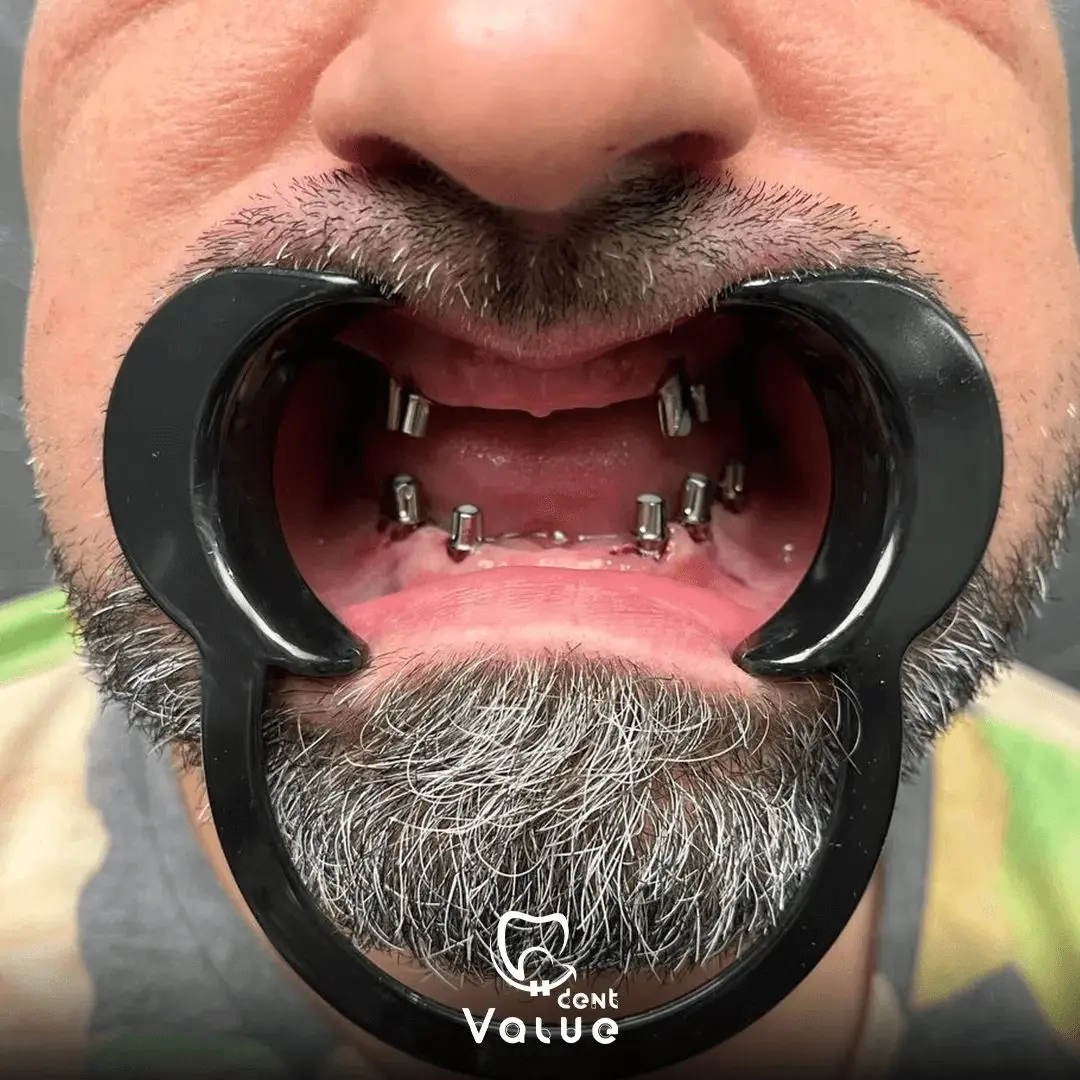
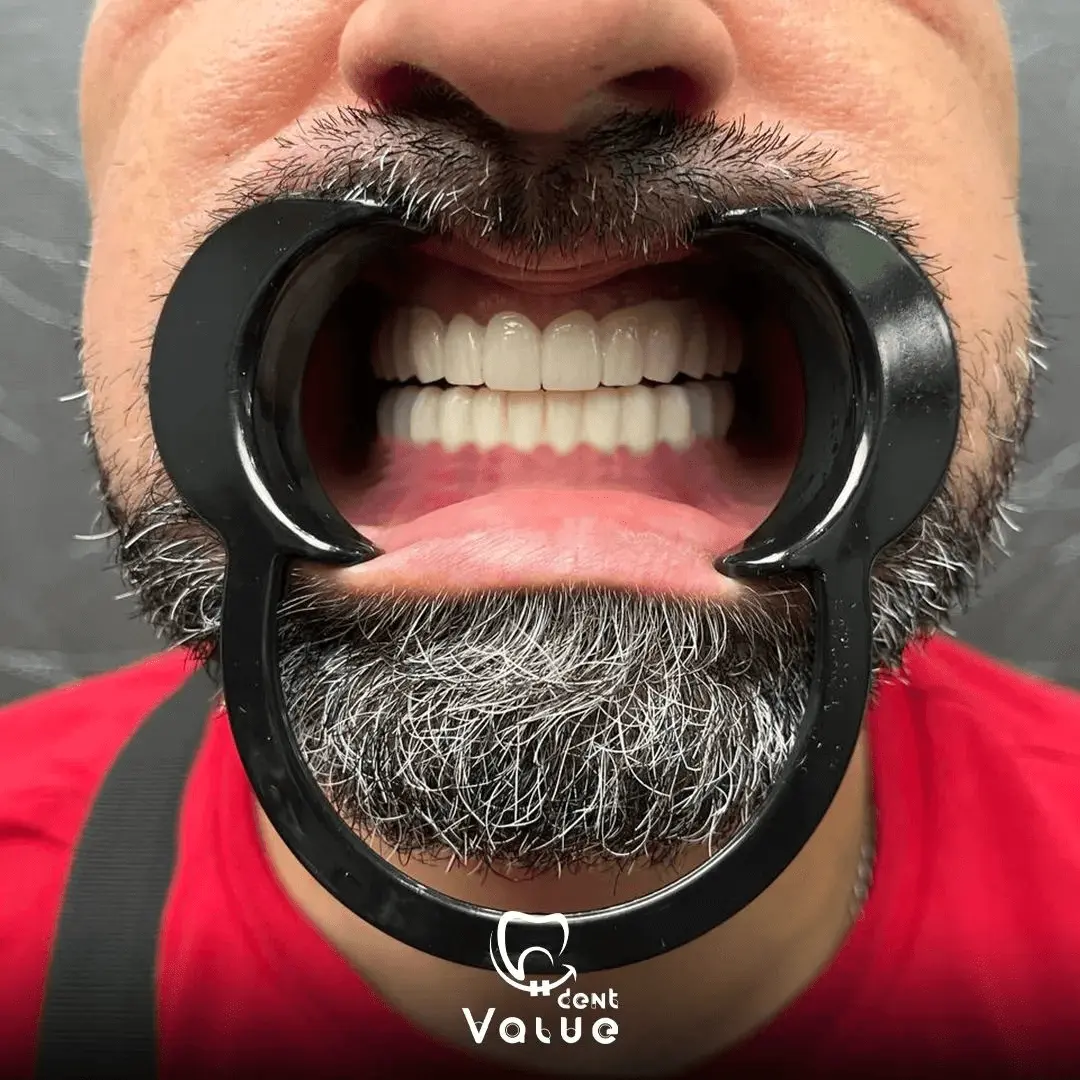
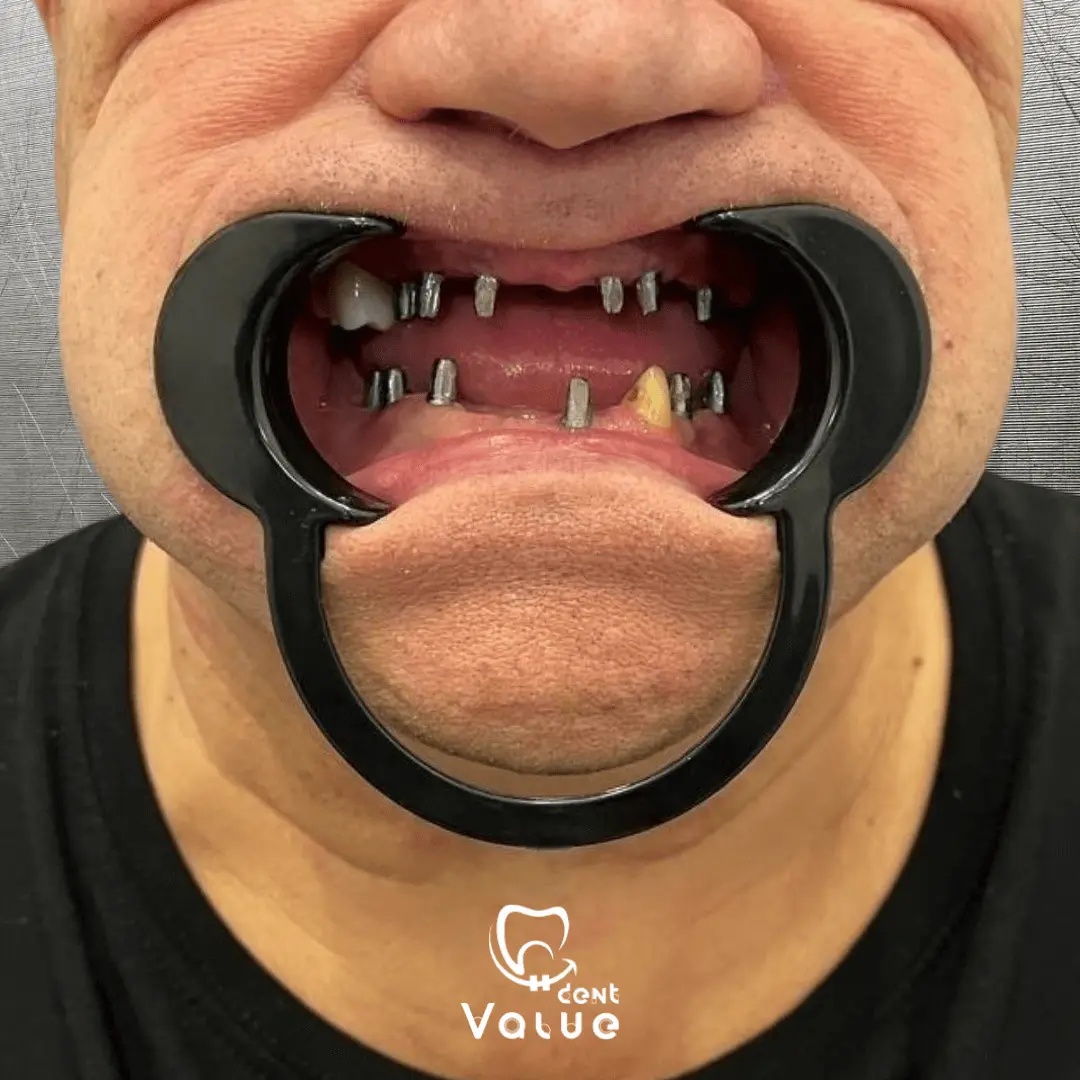
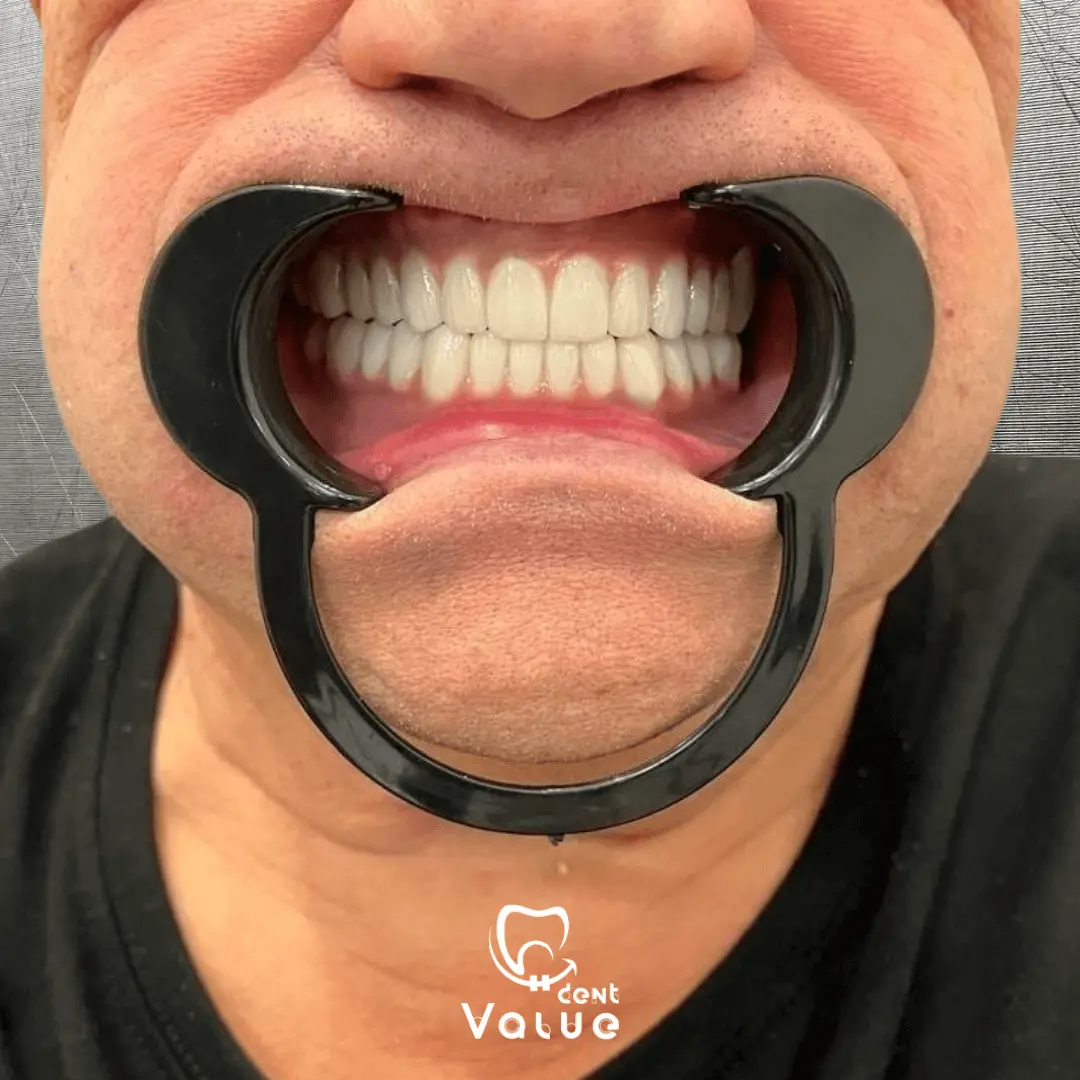
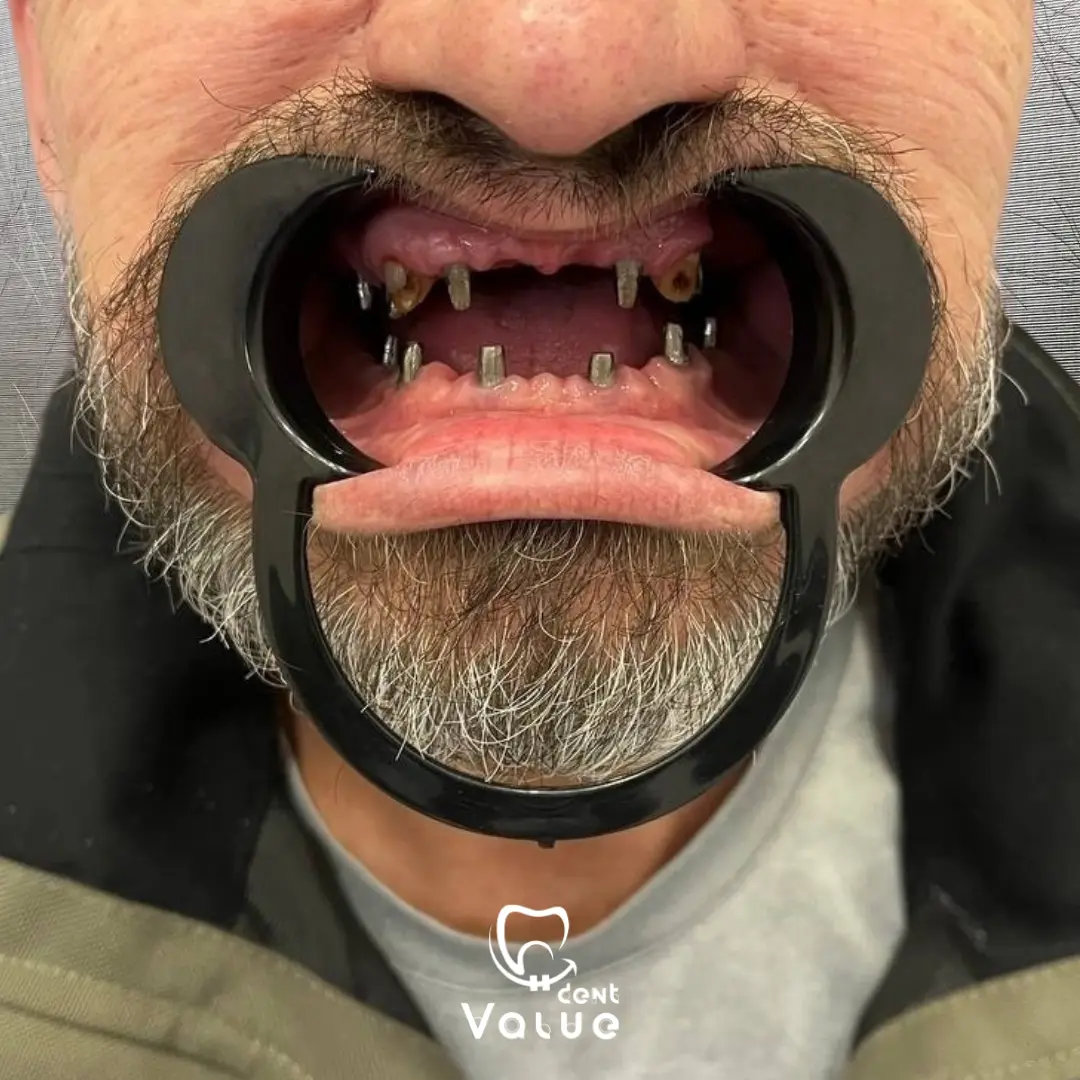
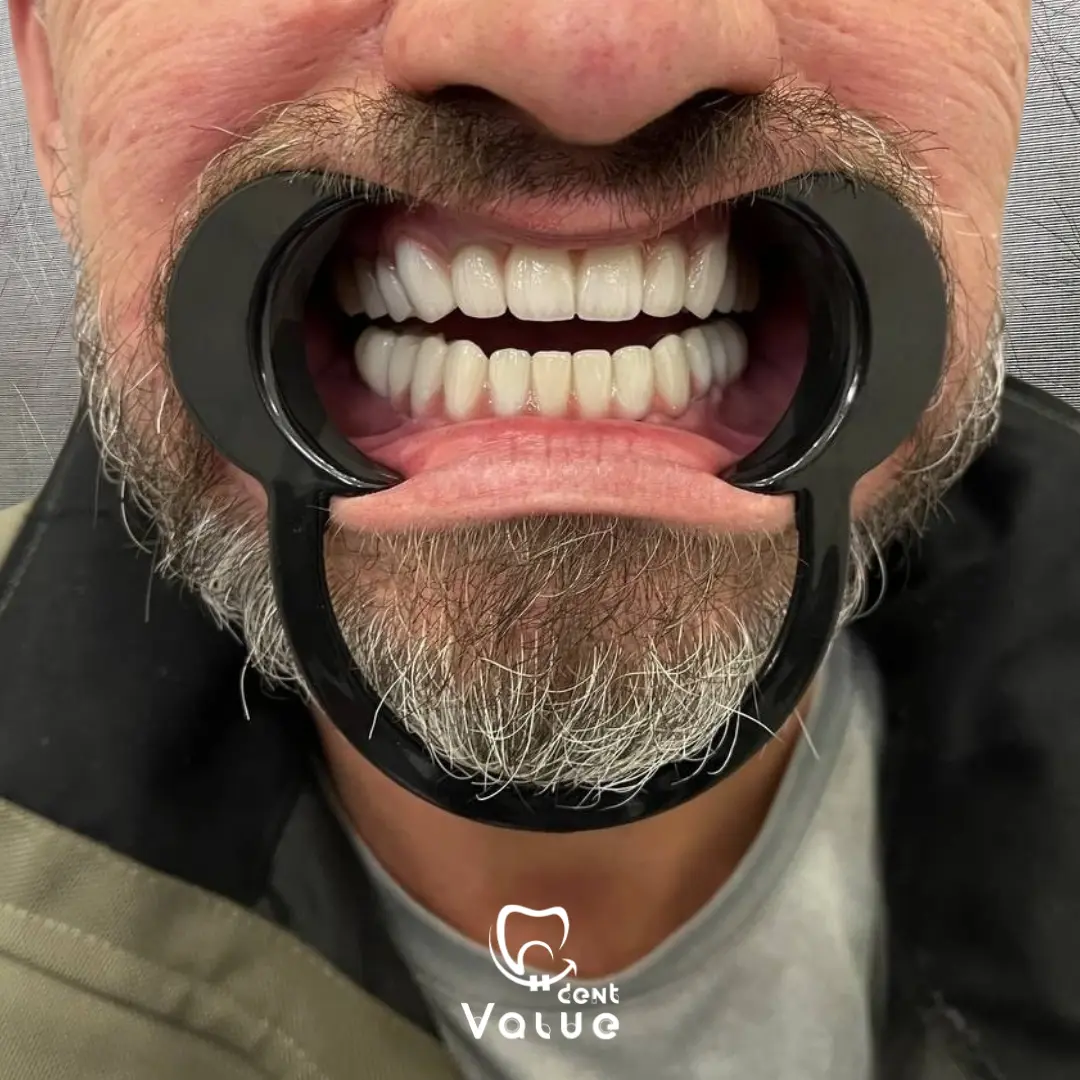
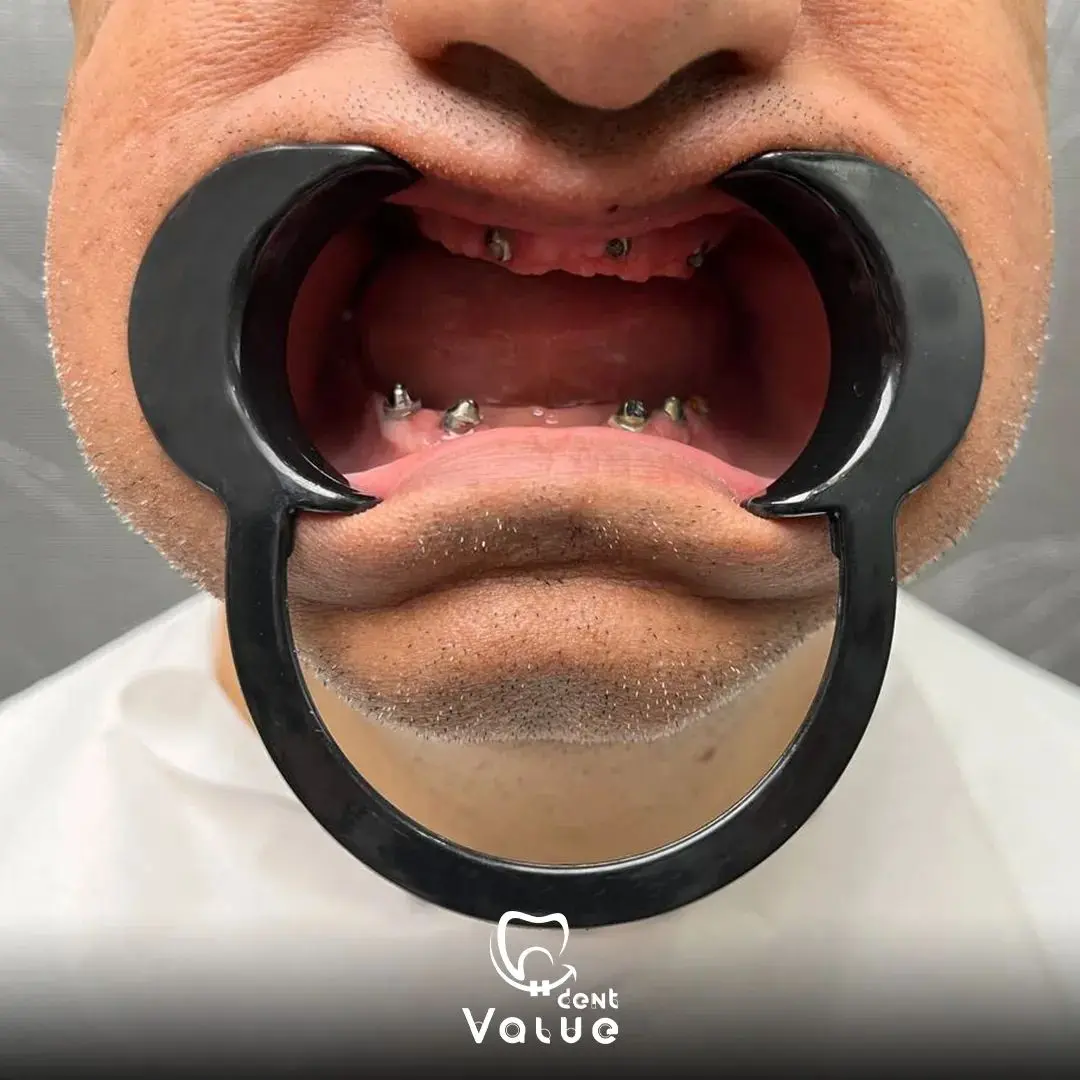
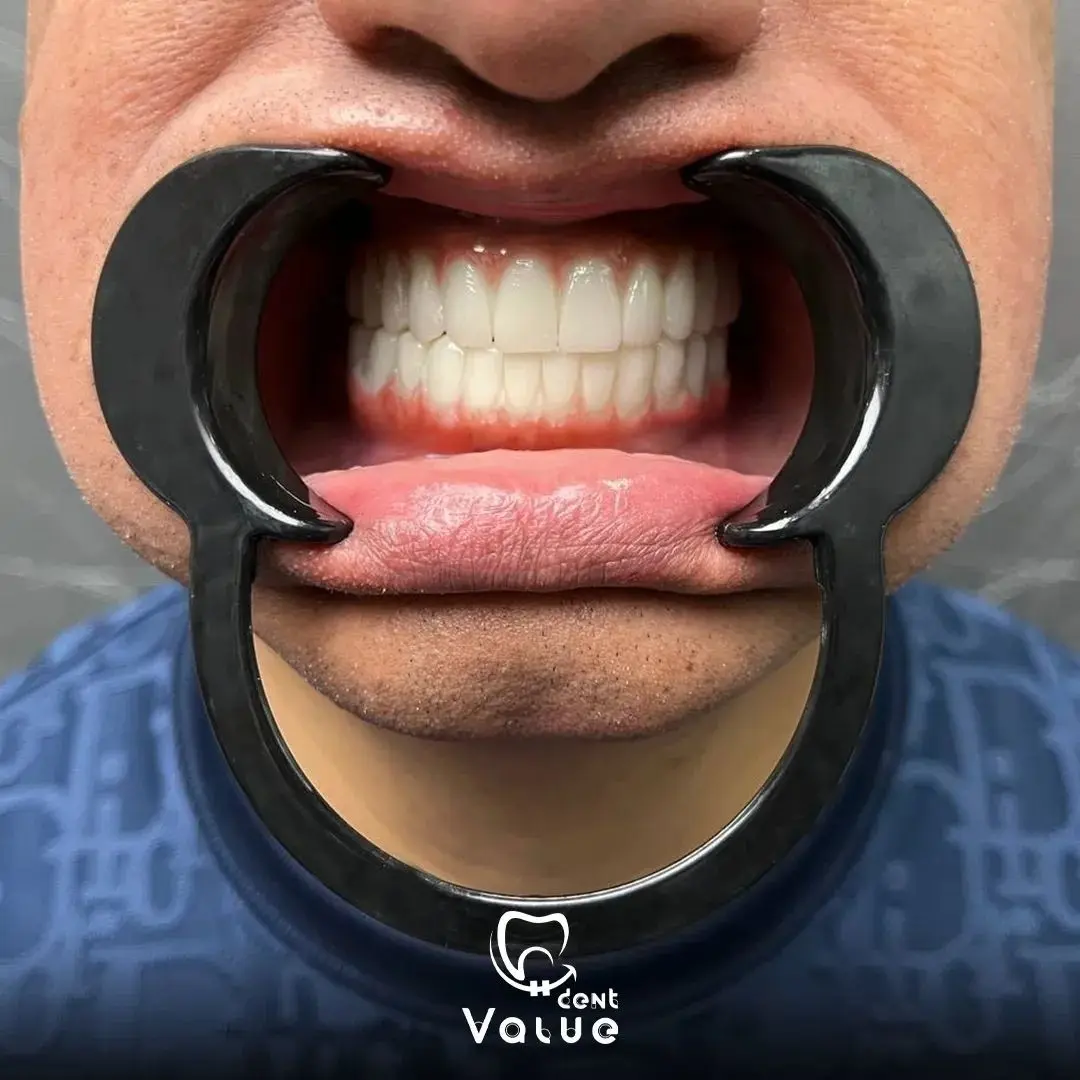
Full Mouth Dental Implants Patient Reviews
Trustindex verifies that the original source of the review is Google. Am so happy thank to the team entirelyTrustindex verifies that the original source of the review is Google. I will like to rate them 100% like wow they are the best, I have been hearing about them lately so I said I should try it myself like they exceeded my expectations, they love, care and attention are the bestTrustindex verifies that the original source of the review is Google. I had an incredible experience at Value Dent Clinic! The team was friendly and professional from the start. Dr. Mehta took the time to carefully assess my dental needs and provided clear, understandable recommendations. The clinic itself is modern and clean, creating a relaxing atmosphere. I left feeling confident and well cared for. Highly recommend this clinic for anyone seeking quality dental care!Trustindex verifies that the original source of the review is Google. Am glad a beautiful and a wonderful place like this exist, it's really a beautiful experience at Value Dent Clinic, starting from the environment very neat, the receptionist is really welcoming, it's was a great time.Trustindex verifies that the original source of the review is Google. I recently visited Value Dent Clinic and had an exceptional experience! From the moment I walked in, I was greeted with a warm smile by the friendly receptionist. The waiting area was clean and comfortable, and I was seen promptly at my scheduled appointment time.Trustindex verifies that the original source of the review is Google. Look for a good and professional dental clinic? Then VALUE DENT is one clinic you don't want to miss. They offer exceptional and professional services. The staffs are very professional, polite and accommodating. You won't regret going to their clinic, they deserve five starsTrustindex verifies that the original source of the review is Google. they have skills in treating and calming pain.Trustindex verifies that the original source of the review is Google. excellent in field of densityTrustindex verifies that the original source of the review is Google. Good dental clinic and good doctors👌Verified by TrustindexTrustindex verified badge is the Universal Symbol of Trust. Only the greatest companies can get the verified badge who has a review score above 4.5, based on customer reviews over the past 12 months. Read more
FAQ
Frequently Asked Questions About Full Mouth Implants
How much does a full mouth dental implant cost in Turkey?
Single Tooth Implant Costs
| Component | Istanbul Price | US Price | Savings |
|---|---|---|---|
| Implant + Abutment | $400-800 | $2,000-2,500 | 75% |
| Crown | $200-350 | $1,000-2,000 | 80% |
| Total Single Implant | $650-850 | $3,000-4,500 | 80% |
Multiple Implant Solutions
| Treatment | Istanbul Price | US Price | Savings |
|---|---|---|---|
| 2-3 Implants | $1,300-2,400 | $6,000-12,000 | 78% |
| 4-6 Implants | $2,600-4,800 | $12,000-24,000 | 75% |
| All-on-4 | $3,600-6,400 | $25,000-35,000 | 75% |
| All-on-6 | $4,800-9,600 | $30,000-40,000 | 73% |
| Full Mouth Implants (8+ Implants) | $6,400-12,800 | $40,000-60,000 | 80% |
Full mouth dental implants Turkey price?
Full mouth dental implants in Turkey are significantly more affordable compared to Western countries.
In Istanbul, the cost typically ranges from $10,000 to $20,000, depending on the complexity of the case and the chosen clinic.
Valuedent Clinic offers personalized treatment plans, providing both aesthetic and functional solutions.
It’s important to note that prices can vary based on factors such as implant brand, materials used, and the expertise of the dental professionals.
Therefore, it’s recommended to consult directly with Valuedent Clinic for the most accurate and up-to-date pricing tailored to your specific needs.
Full mouth dental implants Turkey package deals reviews?
Full mouth dental implants in Turkey are a popular choice for patients seeking comprehensive dental restoration at a fraction of the cost found in countries such as the UK and USA.
Package deals usually cover the entire treatment process, including necessary procedures, accommodation, transportation, and aftercare, ensuring a hassle-free experience for international patients. Book an Appointment Now!
Istanbul dental implants price?
Valuedent Clinic in Istanbul offers comprehensive dental implant procedures, including All-on-4 and All-on-6 implants, at competitive prices. While specific pricing details are not publicly listed on their official website,
it’s known that All-on-4 dental implants in Turkey generally range from approximately £1,600 to £12,500, depending on factors such as implant brand, materials used, and the complexity of the procedure.
Best dental implants in istanbul, turkey?
Valuedent Clinic in Istanbul is highly regarded for offering some of the best dental implant treatments in Turkey. The clinic specializes in advanced dental technologies, including All-on-4, All-on-6, and single dental implants, all tailored to meet individual needs for both aesthetic and functional results.
Patients at Valuedent Clinic benefit from personalized treatment plans, which are designed after a thorough consultation and examination. The clinic’s experienced dental professionals use high-quality materials, including titanium implants that integrate well with the jawbone, ensuring long-lasting results. They are also known for their focus on patient care throughout the treatment process, from initial consultation to post-treatment follow-up.
Valuedent Clinic has earned praise for providing comprehensive services, including hotel accommodations and transportation for international patients. Many patients have shared positive reviews about their experiences, noting the clinic’s commitment to quality and affordability. While the cost of dental implants can vary depending on the type of implant and the complexity of the procedure, Valuedent Clinic offers competitive pricing compared to other countries, making it a popular destination for those seeking top-quality dental care abroad.
For accurate pricing and to learn more about the specific dental implant options available at Valuedent Clinic, it is best to contact them directly for a free consultation.
Full mouth dental implants Turkey price Antalya?
It seems there might be some confusion in the question since Valuedent Clinic is located in Istanbul, not Antalya. However, I can provide you with an idea of the pricing for full mouth dental implants at Valuedent Clinic in Istanbul.
The cost of full mouth dental implants in Istanbul typically ranges between $8,000 to $20,000, depending on the type of implants (such as All-on-4 or All-on-6), materials used, and the complexity of the procedure. Valuedent Clinic is known for its affordable pricing compared to countries like the US or UK, without compromising on quality.
For All-on-4 implants, prices usually start around $8,000 per arch, which can be more cost-effective than treatments in Western countries. It’s worth noting that the price can vary based on the patient’s specific needs and treatment plan.
If you’re interested in getting dental implants in Istanbul at Valuedent Clinic, it’s recommended to directly contact the clinic for an accurate and personalized quote, as they offer free consultations to assess your case and provide tailored treatment options.
How long does it take to get full dental implants in turkey?
At Valudent Clinic, we are committed to providing our patients with the highest dental care, including full dental implants. The exact duration of the procedure may vary depending on each individual’s unique case and needs. However, typically, the process takes about 3-4 months from start to finish, which includes healing time for the implant to fuse with the jawbone. Our experienced professionals use advanced technology to ensure a smooth and efficient process for our patients, so you can trust that you’ll have your beautiful new smile in no time.
How much is a full mouth of crowns in turkey?
At Valudent Clinic, we understand the importance of quality dental care at an affordable price. Our full-mouth crowns in Istanbul, Turkey, start at just $5000 USD, a fraction of the cost compared to US prices. Our experienced professionals use advanced technology to ensure the best results for our patients. Plus, with Istanbul being a leading destination for dental tourism, you can enjoy a beautiful vacation while saving on your dental treatment. Trust Valudent Clinic to provide exceptional and affordable dental care for your full mouth of crowns in Turkey.
How long does it take for full mouth dental implants in Turkey?
Full mouth dental implant procedures in Turkey typically require two visits, each with specific durations:
First Visit: This initial visit lasts between 5 to 7 days, during which the dental implants are surgically placed into the jawbone.
Second Visit: The subsequent visit occurs after a healing period, generally spanning 3 to 6 months, to allow the implants to integrate with the bone (osseointegration). This visit lasts between 7 to 10 days, focusing on placing the final prosthetic teeth.
The total time spent in Turkey for the procedure is approximately 12 to 17 days, excluding the healing interval between visits. This timeframe allows for comprehensive treatment, including initial implant placement, healing, and final restoration, ensuring optimal outcomes for patients.
Is it worth going to Turkey for dental implants?
Dental implant treatment in Turkey is preferred by many patients worldwide due to its high-quality services offered at affordable prices.
Especially patients from countries like Germany choose Turkey for its lower costs and high-quality implant options.
Turkish dental clinics provide personalized treatment packages, offering both aesthetic and functional solutions.
Additionally, thanks to the growing health tourism in Turkey, accommodation and transportation expenses are quite economical. Considering all these factors, traveling to Turkey for dental implant treatment can be seen as both an economical and high-quality option.
What country is the cheapest to get a full set of dental implants?
Countries offering the most affordable prices for full mouth dental implants include Turkey, Bulgaria, and India.
Especially Turkey is known for providing high-quality services at affordable prices, attracting many dental tourists every year.
With Valuedent Clinic, you can receive reliable, high-quality, world-class service! Book your appointment now!





